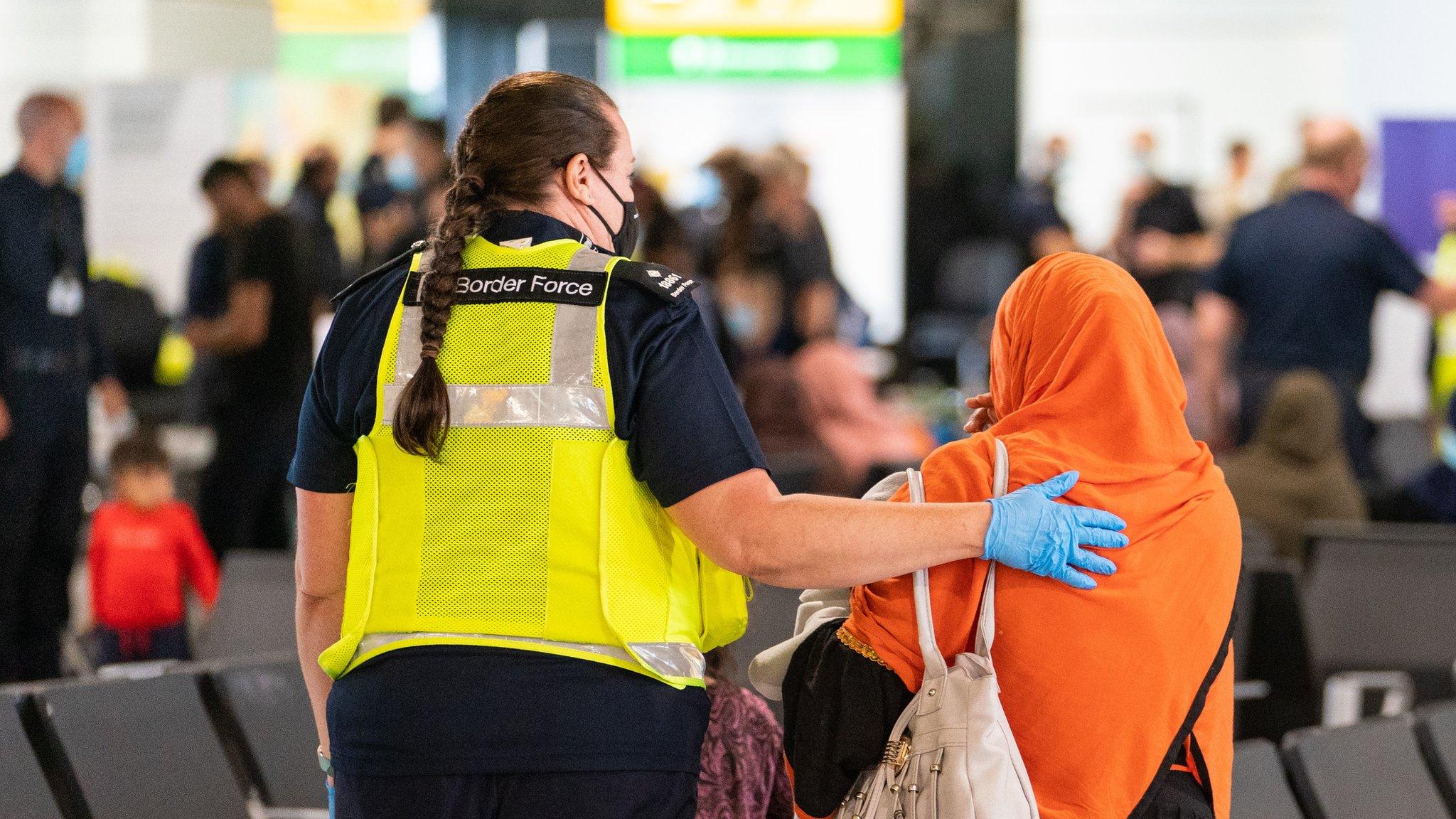Afghan: Council leader gets abusive messages over refugees
- Published
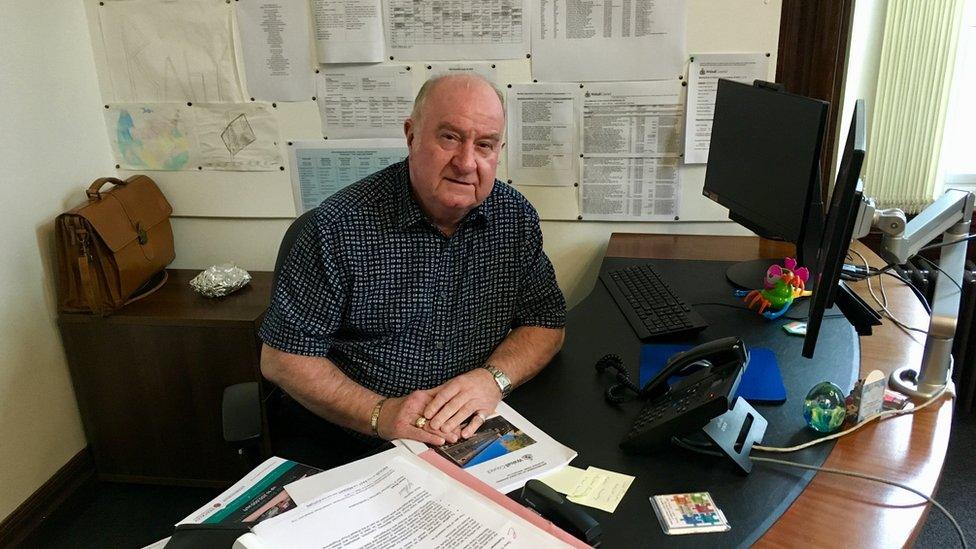
Council leader Mike Bird received the abuse after the council pledged to help refugees
Abusive emails have been sent to a council leader, he said, in response to the local authority's pledge to support Afghanistan refugees.
Walsall Council has already agreed to resettle 80 families as part of the government's Afghan Relocations and Assistance Policy (ARAP).
On Wednesday that was extended to 120 families.
However, leader Mike Bird told the cabinet meeting he had personally faced abusive messages on the issue.
He said the emails, penned by "cowardly keyboard warriors", had been passed on to monitoring officers and may be referred to police, according to the Local Democracy Reporting Service.
"The abuse that I've had in some emails beggars belief," he told councillors.
"It's disappointing there are those out there who think it is right and proper to send abuse to elected members of this council because we are doing the right thing."
"You get people saying, 'you don't want these people walking around in burkas speaking foreign languages, what about the housing crisis, why should they have preference, they'll be coming here living off benefits'.
"We have a duty to try and do our best and assist in a humanitarian crisis and anybody who wants to send me abusive emails - bring it on. They think you are fair game to be abused but no, we're not going to stand for it."
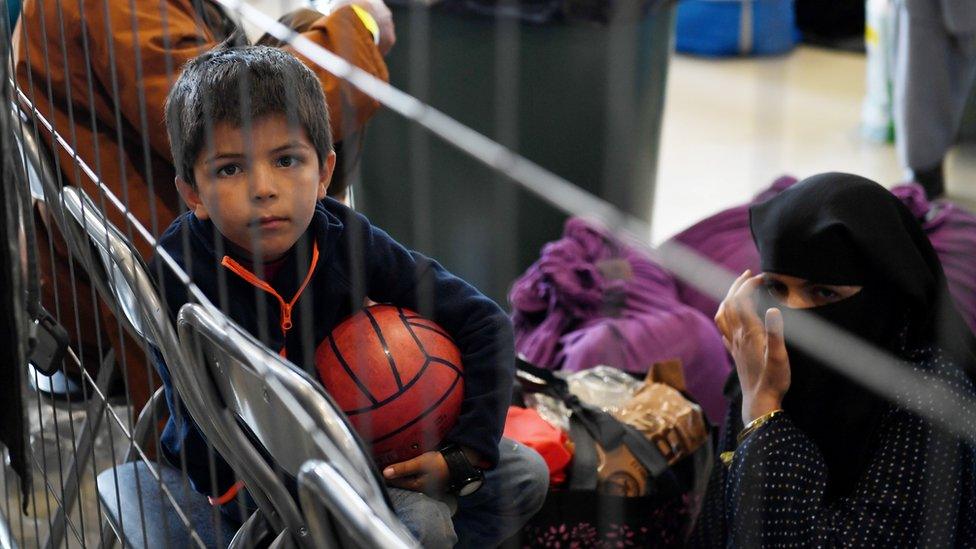
The council has pledge to extend its Afghan resettlement scheme
Mr Bird added some of the refugees had "put their lives on the line for us" and that the council had a duty to educate those "who don't understand the atrocities" that continue to happen in the country.
Latest news from the West Midlands
He also called on the government to encourage more local councils to take in Afghan families.
The government has pledged to resettle 20,000 Afghans over the next five years, but Mr Bird said only a third of local authorities were taking part.

Follow BBC West Midlands on Facebook, external, Twitter, external and Instagram, external. Send your story ideas to: newsonline.westmidlands@bbc.co.uk, external
Related topics
- Published18 August 2021
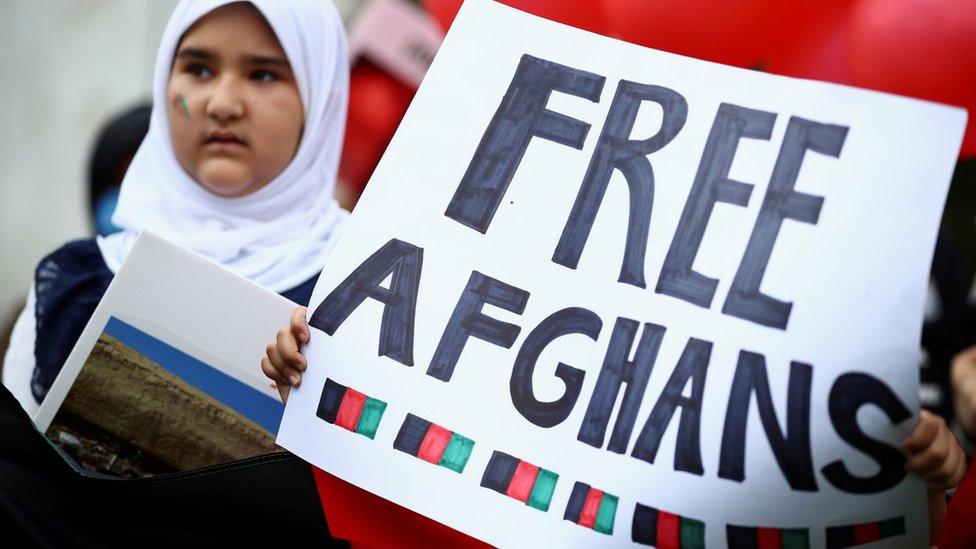
- Published1 September 2021
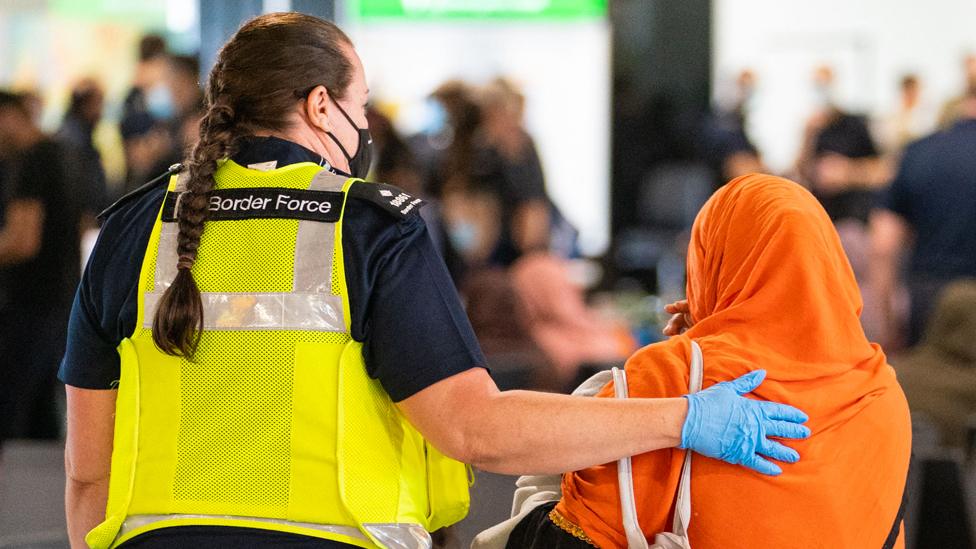
- Published2 September 2021
